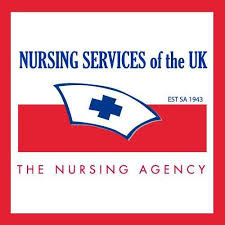PHE launches Psychological First Aid training for those supporting children and young people
/Psychological First Aid - Free Training Available for Nurses & Care Staff
The course is free for all that care for and work with children and young people aged between 0 and 25 and no previous qualifications are required to be enrolled.
For guidance for the public on the mental health and wellbeing aspects of coronavirus please visit gov.uk and Every Mind Matters.
The Psychological First Aid course is a training resource to equip people with information to help others. It is not intended as a therapeutic intervention for those who are experiencing distress or crisis. Anyone needing help should visit NHS 111 website https://111.nhs.uk/, call 111 or contact their GP.
Online training developed by PHE is now available to all those who care for or work with children and young people aged up to 25
The COVID-19 pandemic has had a huge impact on children, with many reporting that it has made them feel more stressed, lonely and worried [1].
The online course, developed by PHE, offers training on how to provide practical and emotional support to children and young people affected by emergencies or crisis situations. Children and young people can be very resilient, but crises such as COVID-19 can severely impact their mental health. Getting the right support early on can help prevent problems occurring or worsening.
Those completing the training will be equipped to better identify those children that are in distress and provide support to help them feel safe, connected and able to take steps to help themselves during the pandemic or other crisis situations.
It is available for all frontline workers such as teachers, health and social workers, charity and community volunteers and anyone who cares for or is regularly in contact with children and young people aged up to 25, including parents and caregivers. It is free, takes about three hours to complete (split into three sessions that the learner can complete at their own pace) and no previous qualifications are required.
On completion, participants will have an understanding of what Psychological First Aid is, be able to identify who would benefit from support and how best to give help across the different age groups and also for those who might need extra support because of different needs.
Clare Perkins, Director of the Mental Health Programme at Public Health England said:
“The pandemic has caused significant disruption to all of our daily lives. Children are among the worse impacted being stuck at home and not able to have the essential social interaction with their friends. And many young people are anxious and worried about their future in these uncertain times.
Children and young people will react to the COVID-19 pandemic in different ways. The Psychological First Aid training course will help professionals, volunteers, parents and carers better identify the signs of those who are struggling and give them timely effective support that is right for them – helping them feel safe and able to help themselves.”
Psychological First Aid (PFA) is a globally recognised training programme designed to support people during or in the aftermath of a serious event. PHE has adapted this training for those supporting children and young people with advice from a range of experts, including NHS England, the Department for Education and British Red Cross and is being made available online by social learning platform, Future Learn.
Minster for mental health, Nadine Dorries, said:
“Children and young people have been uniquely challenged by the events of the last year. I remain absolutely committed to supporting them through this pandemic and beyond, ensuring we equip them with the tools and support they need to stay mentally well.
This training will ensure those who work with children and young people – including parents and caregivers - can support their wellbeing by identifying signs of distress and helping them access the support they need.
We know while children can be very resilient, crises or emergencies can have a huge impact on their mental health and we must continue to ensure the can access the support they need.”
Claire Murdoch, NHS Mental Health Director, said:
“The pandemic has turned our lives upside down and hit children and young people particularly hard.
Working with our partners, we have been doing everything possible to make sure that they are fully supported and this online training will be invaluable in helping people to understand how best to offer the right support at the right time.
It has been a tough year, but the NHS is here for children’s mental health, so anyone who is struggling should come forward for the help they need.”
About Public Health England
Public Health England exists to protect and improve the nation’s health and wellbeing and reduce health inequalities. We do this through world-leading science, knowledge and intelligence, advocacy, partnerships and providing specialist public health services. We are an executive agency of the Department of Health and Social Care, and a distinct organisation with operational autonomy. We provide government, local government, the NHS, Parliament, industry and the public with evidence-based professional, scientific expertise and support.
[1] Barnardo’s. Generation lockdown: a third of children and young people experience increased mental health difficulties. 2020. [Sample of 4,283 young people aged 8-24, weighted to be representative of all -24 year olds, GB. Collected 15 May-2 June 2020.]

